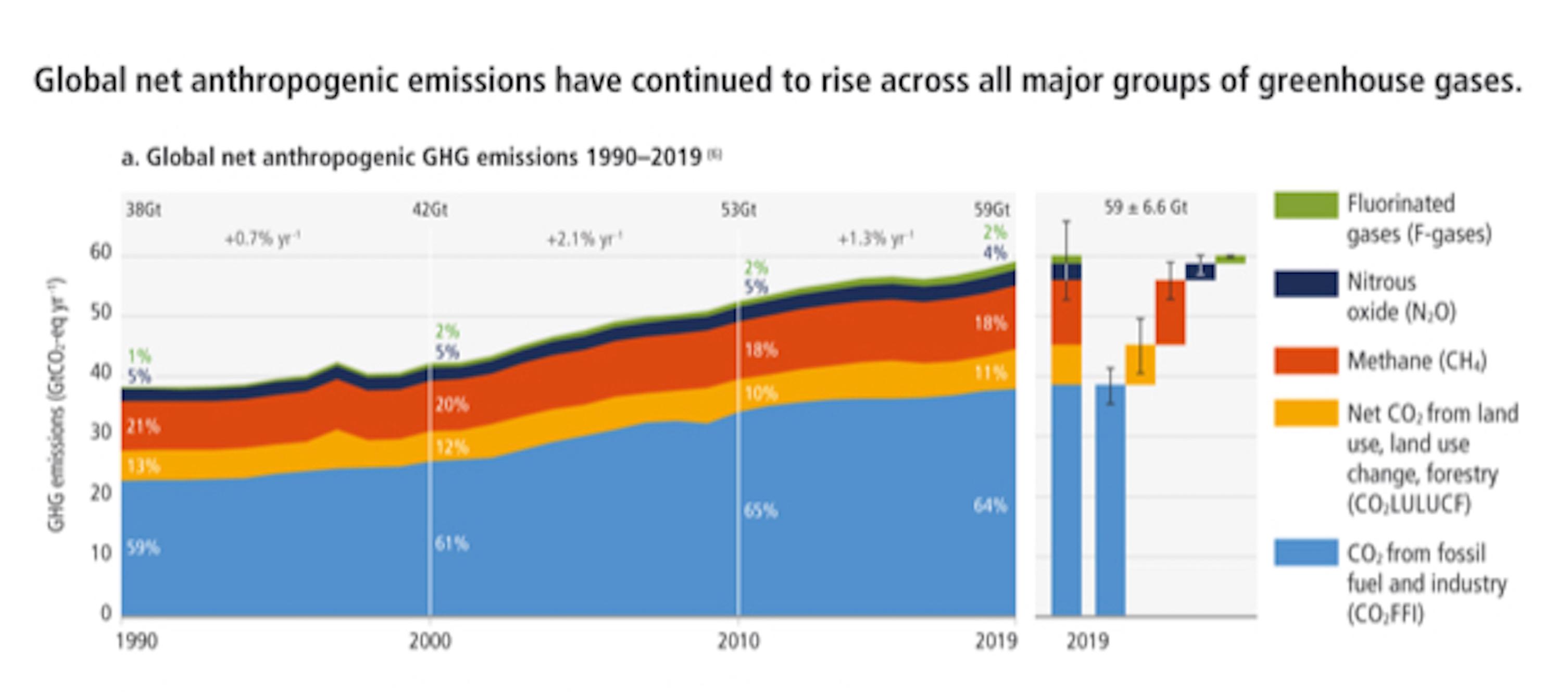

Significant change to transport will be essential if the worst impacts of climate change are not to become irreversible, the Intergovernmental Panel of Climate Change (IPCC) has warned.
Measures must be introduced now to create more connected and less car-dependent cities, encouraging homeworking and active travel and accelerating the shift to electric vehicles, it says.
Imperial College London’s Professor Jim Skea is co-chair of Working Group III, the group of 278 authors responsible for the report. “It’s now or never, if we want to limit global warming to 1.5°C,” he said. “Without immediate and deep emissions reductions across all sectors, it will be impossible.”
After studying the almost 3,000-page report, LTT columnist John Dales said: “The report is saying that we can do what we need to do, for our own benefit. The obvious question this begs is, Will we?.
The Sixth Assessment Report, published on 4 April, is the third and final section of the IPCC’s latest comprehensive review of climate science.
Greenhouse gas emissions (GHG) must peak no later than 2025 if the world is to limit global warming to 1.5°C above pre-industrial levels.
Big cuts to GHGs can be achieved by supporting public transport and walking and cycling, as well as efficiently improving or repurposing buildings, according to the report. Rapidly growing cities can avoid future emissions by “co-locating jobs and housing to achieve compact urban form, and by leapfrogging or transitioning to low-emissions technologies”.
Steps must be taken to reduce demand for all transport services and support the shift to more energy efficient transport modes. Electric vehicles powered by low emissions electricity offer the largest decarbonisation potential for land-based transport, says the report. “Many mitigation strategies in the transport sector would have various co-benefits, including air quality improvements, health benefits, equitable access to transportation services, reduced congestion, and reduced material demand.”
Cities will have to adapt, with changing density, land use mix, connectivity, and accessibility. Alongside this, there should be programmes that encourage changes in consumer behaviour (such as transport pricing) to reduce transport related GHG emissions in developed countries and slow growth in emissions in developing countries.
The IPCC estimates that cities can reduce their transport-related fuel consumption by around 25% through more compact land use and the provision of less car-dependent transport infrastructure. “Appropriate infrastructure, including protected pedestrian and bike pathways, can also support much greater localised active travel.”
The Covid-19 pandemic highlighted how “telecommuting” can replace significant numbers of work and personal journeys as well as promoting local active transport, says the report. “There are growing opportunities to implement strategies that drive behavioural change and support the adoption of new transport technology options.”
The report welcomes the development of electric vehicles in bringing down GHG emissions. The costs of EVs, including two and three wheelers and buses, is falling and their adoption is accelerating, the report notes. “But they require continued investments in supporting infrastructure to increase scale of deployment.”
The continued growth of EVs will depend on more investment in electric charging and related grid infrastructure.”
EVs powered by low-carbon electricity has the potential to rapidly cut transport GHG and can be applied with multiple co-benefits, especially in the developing countries.
But there are growing concerns about the critical minerals needed for batteries, the IPCC adds. “Material and supply diversification strategies, energy and material efficiency improvements, and circular material flows can reduce the environmental footprint and material supply risks for battery production.”

TransportXtra is part of Landor LINKS
© 2026 TransportXtra | Landor LINKS Ltd | All Rights Reserved
Subscriptions, Magazines & Online Access Enquires
[Frequently Asked Questions]
Email: subs.ltt@landor.co.uk | Tel: +44 (0) 20 7091 7959
Shop & Accounts Enquires
Email: accounts@landor.co.uk | Tel: +44 (0) 20 7091 7855
Advertising Sales & Recruitment Enquires
Email: daniel@landor.co.uk | Tel: +44 (0) 20 7091 7861
Events & Conference Enquires
Email: conferences@landor.co.uk | Tel: +44 (0) 20 7091 7865
Press Releases & Editorial Enquires
Email: info@transportxtra.com | Tel: +44 (0) 20 7091 7875
Privacy Policy | Terms and Conditions | Advertise
Web design london by Brainiac Media 2020